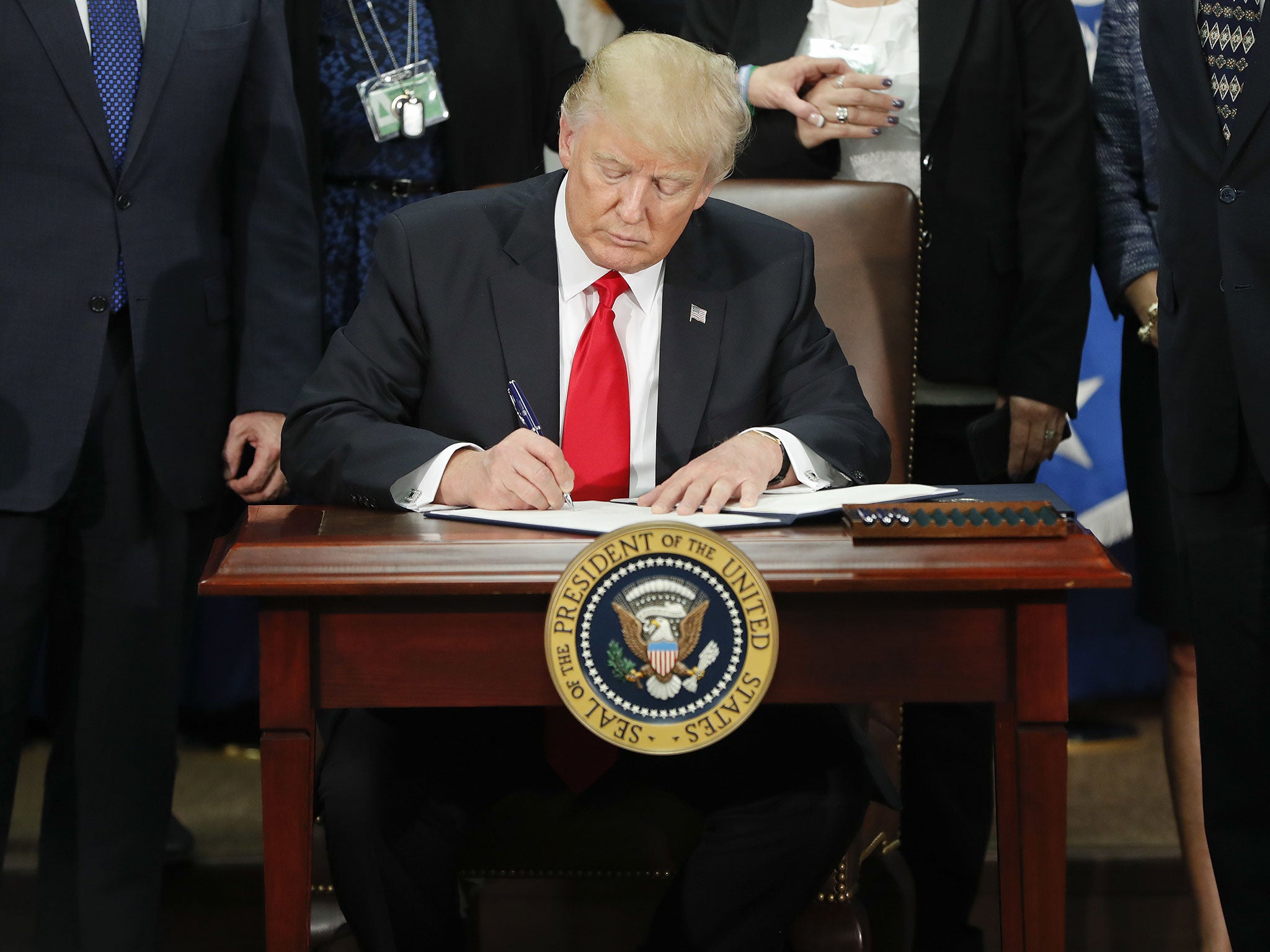The Muslim country Trump isn't banning refugees from
Saudi Arabia has been a strategic partner of the US since the 1940s

Saudi Arabia, one of the world's most prominent Muslim nations which has previously been associated with terrorism and religious extremism, is likely to escape censure from Donald Trump.
The US leader blocked refugee admissions from Syria, barring all refugees from the rest of the world for at least 120 days and suspending immigration from Syria and six other predominantly Muslim countries, Iran, Iraq, Libya, Somalia, Sudan and Yemen, for at least 30-days.
But the document makes no mention of Saudi Arabia, despite the Middle-Eastern country's associations with the largest terror attack on US soil.
ountries in the same region not subject to the impending crackdown include Saudi Arabia, where Mr Trump had declared he registered a number of companies including THC Jeddah Hotel and DT Jeddah Technical Services, in the kingdom’s second city, Jeddah – some of which have since been closed. Trump Organisation lawyer Alan Garten said in December 2016: “There is no deal in Saudi Arabia.”
In January 2016, a few months after the companies were created, Mr Trump told Fox News that he “would want to protect Saudi Arabia” from a potential Iranian threat.
But he added that the Arab kingdom was “going to have to help us economically” and referenced the billions of dollars the country has made from the oil trade.
Saudi Arabia has previously been associated with terrorism and religious extremism, and has been linked with the largest terror attack on US soil.
Of the 19 hijackers involved in the 9/11 attacks on the World Trade Centre in New York, 15 were Saudi Arabian citizens.
The independent American commission that investigated the attacks found no evidence that the Saudi government or senior Saudi officials financed the terrorists. Saudi Arabia has strenuously denied any involvement in the attacks.
Saudi officials also recently admitted to misleading the US on funding extremism, according to the Politico website.
The country, which strictly enforces Sharia law, is also home to Wahhabism - the fundamentalist strand of Islam which has inspired many of the extremists the US is trying to defeat, including Isis
Despite Saudi Arabia's extremely religious nature – the state claims status as guardian of the two most holy sites in Islam, Mecca and Medina – the government has not condemned Mr Trump’s remarks about Muslims.
Indeed, the new US President's ascendancy has been welcomed by the Gulf States, who share his deep opposition to Iran, their geopolitical rivals.
“We are very optimistic about the Trump Administration,” Saudi Arabia’s Foreign Minister Adel al-Jubeir told Al Arabiya after Mr Trump’s inauguration.
“The positions that President Trump has articulated are ones that we are completely in accordance with,” Mr Jubeir said. “Restoring America’s presence in the world is something we – and all of the American – welcome because the lack of an American engagement leads to a vacuum.”
Barack Obama’s relationship with Saudi Arabia was somewhat cooler than previous presidents. While his administration maintained relations, the Iran deal caused great frustration in Saudi Arabia.
The US has been a solid partner of Saudi Arabia since 1945, when the Kingdom’s strategic importance – particularly for oil – was recognised by the then US President, Franklin D Roosevelt.
The Carter Doctrine of 1980 further consolidated this relationship, when President Jimmy Carter vowed to use military force to protect its interests in the Persian Gulf.
The countries have since shared extensive economic and security ties.
President Donald Trump is also bombing four of the seven countries from where he's restricting immigration
Join our commenting forum
Join thought-provoking conversations, follow other Independent readers and see their replies
Comments